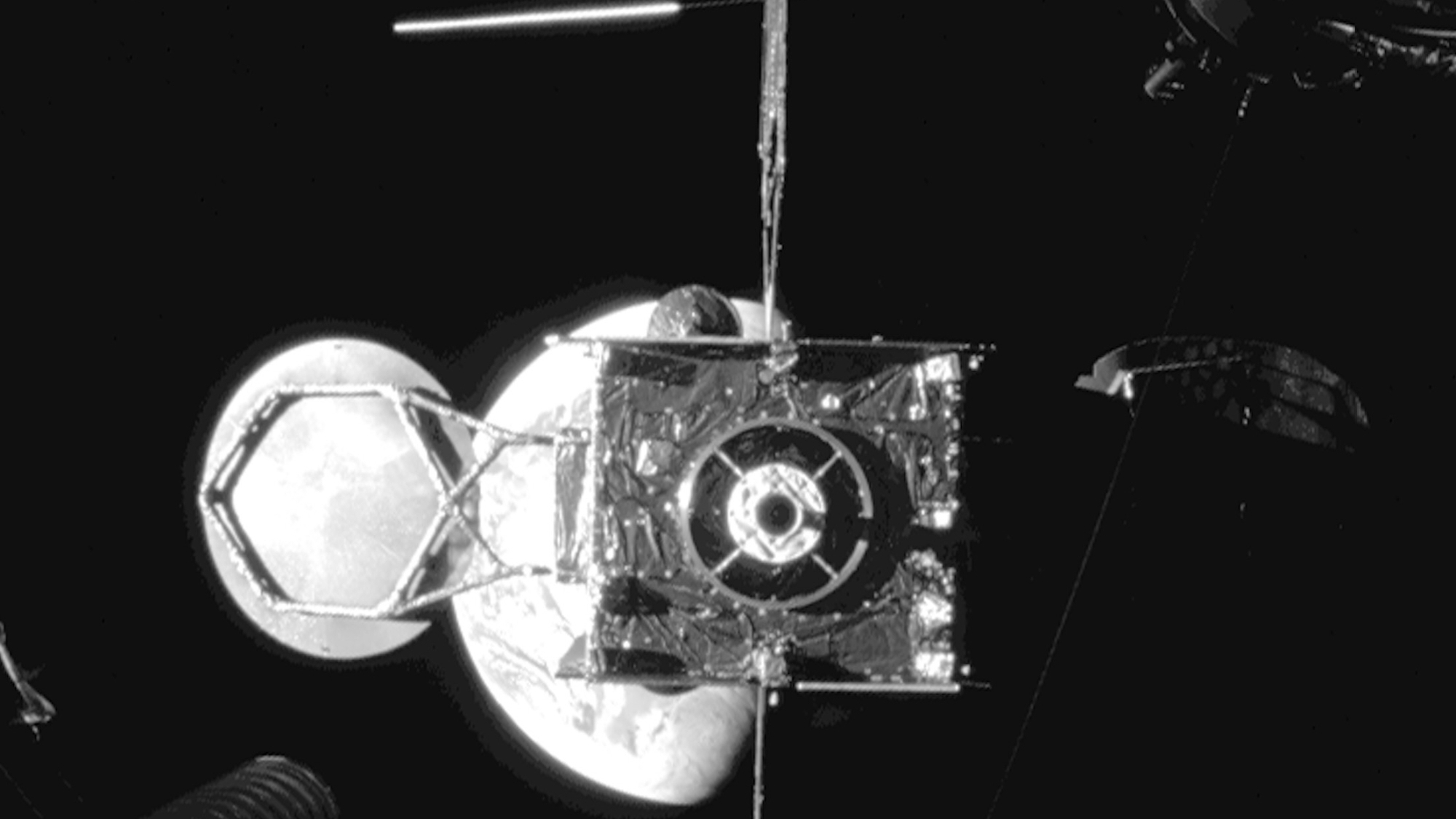'Space Cadet' applies humor to NASA astronaut selection, says film director (interview)
'I just thought this is a fantastic world for a comedy because these people are so extreme, and that makes for good comedy.'
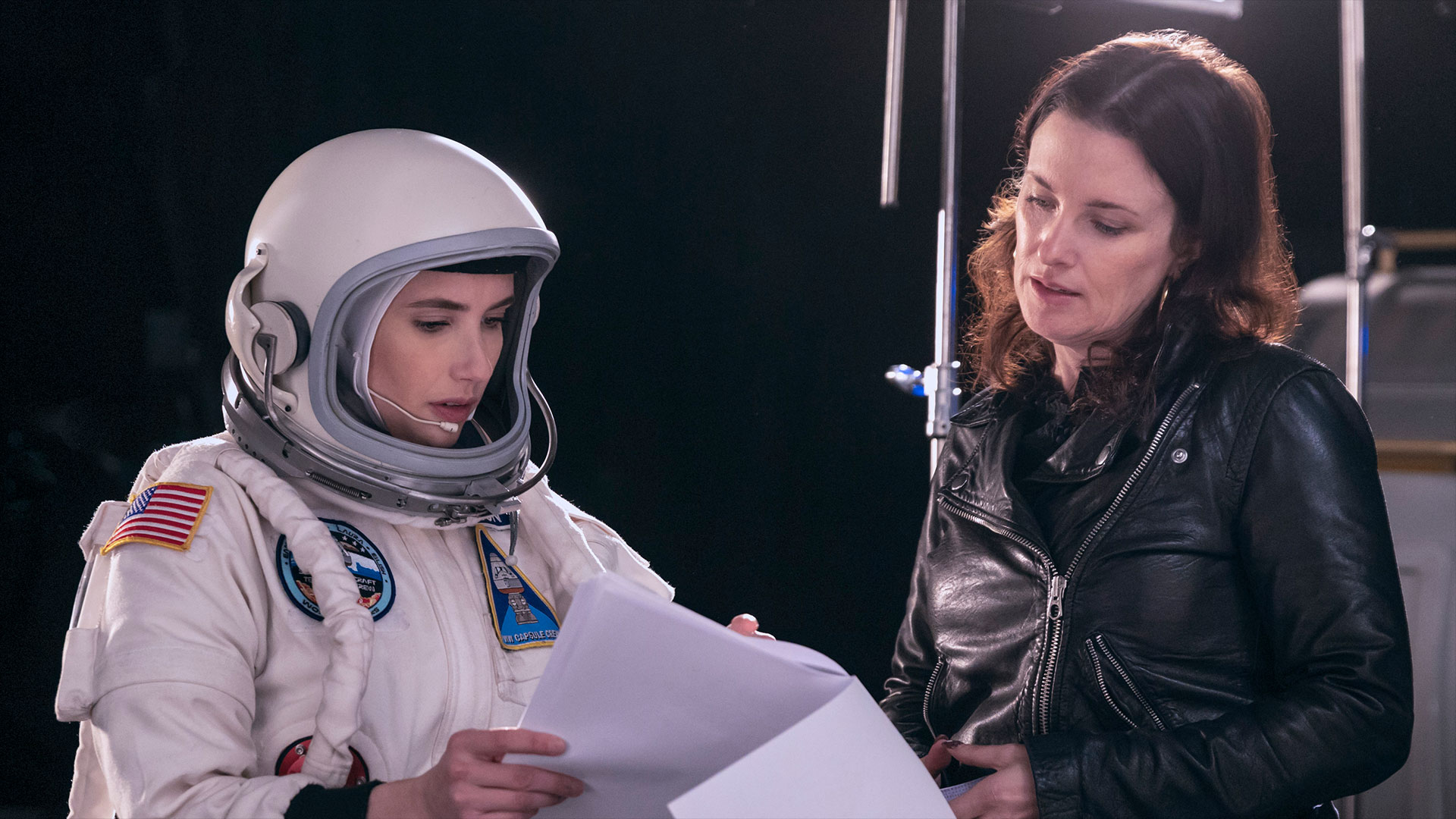
Right now, in real life, the members of NASA's astronauts corps are helping to review the thousands of applications that the space agency has received to join their ranks as the next candidates to train for space. Chances are, though, none of the submissions are from the likes of Tiffany "Rex" Simpson.
Rex, as played by actress Emma Roberts in the new movie "Space Cadet," now streaming on Amazon Prime Video, dreamed of being an astronaut as a young girl but, as often happens, life got in the way. That is, until she decided she was no longer content being a 28-year-old bartender ("mixologist"), sometime-alligator wrestler and full-time Cocoa Beach party girl and applied to NASA.
From there, as they say, the comedy ensues.
Or so struck director and screenwriter Liz W. Garcia, who a few years ago caught the news that, for its first time in its history, NASA had selected an astronaut class that was half men and half women.
"That caught my eye, and I was just curious about who these women were who made it to that point. I started to read about them and then read about the men and what was required to be one of the final, say, dozen people who might not even be selected to go to space. I was just struck and sort of flabbergasted by how incredibly accomplished these people had to be and how unbelievable it was that they had all of the credentials that they had, and they still might not make it. And I just thought this is a fantastic world for a comedy, because these people are so extreme and that makes for good comedy," said Garcia in an interview with collectSPACE.com.
Related: NASA graduates new astronaut class as it begins recruiting for more
So, while "Space Cadet" is far from a documentary about the astronaut selection process, in its comedic look at the extremes the real recruitment involves, it asks valid questions about who NASA excludes from ever being eligible.
"They may not have even glanced at my application if I sent one in, because I do not have a higher degree in a STEM [science, technology, engineering or mathematics] field. I do not have any experience flying jets, and I'm not a risk taker. I don't even like to fly in regular planes. I am not suitable a candidate," said Garcia with a laugh.
"I wouldn't be surprised to see NASA open up the field to people with even more credentials and fields that we don't necessarily think of as being directly related to space exploration as we move into the phases of creating habitats on the moon or getting to Mars," she said.
collectSPACE spoke with Garcia about writing and filming "Space Cadet," which also stars Tom Hopper ("The Umbrella Academy") as NASA's deputy director of operations Logan O'Leary, Poppy Liu ("Hacks") as Rex's best friend Nadine and Gabrielle Union ("Bring It On") as Pam Proctor, NASA's director of operations.
This interview has been edited for length and clarity.
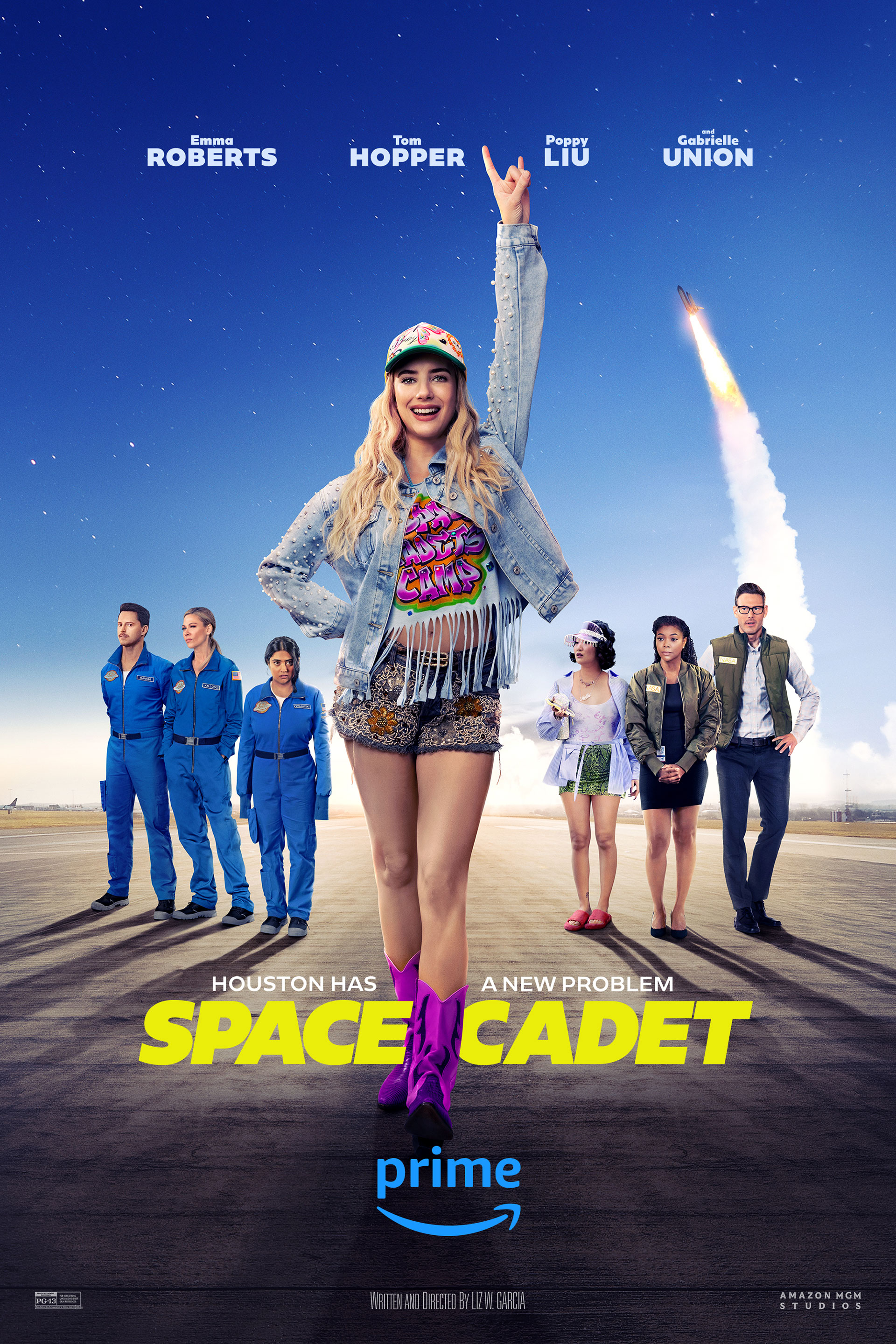
collectSPACE (cS): So, based on what you've already said, it sounds like Emma Roberts' character Rex is not autobiographical.
Liz W. Garcia: She's not autobiographical. I started with who these astronaut candidates really were and what type of personalities and the type of laser focus and prestigious credentials that these people would have to have. And then I went for the opposite.
What if you were incredibly smart and sort of naturally inclined toward the type of work that goes into space exploration, but you didn't have any of those credentials and you were also not laser focused because of circumstances in your life? So she was really built out of what's the polar opposite of the person you would expect to be an astronaut.
Get the Space.com Newsletter
Breaking space news, the latest updates on rocket launches, skywatching events and more!
cS: In "Space Cadet," NASA is named as such but you use a different, fictional logo. Did you go through the process of getting the space agency's permission and get turned down, or did you decide it was not necessary for this film? What was your thought process?
Garcia: We were talking to NASA throughout prep. Ultimately, I wouldn't say that they turned us down as much as we both realized that what would be required to match up with the dignity and traditions at NASA would wind up unraveling the story. That is just part of telling a comedic story; there's too much [that] requires a suspension of disbelief to really be a government-sanctioned movie.
cS: That decision, though, precluded you from filming at Johnson Space Center, where the real astronaut application process is conducted. Instead, you filmed at the U.S. Space and Rocket Center in Huntsville, Alabama.
Garcia: The rocket center was always a great candidate, because they had done the movie "SpaceCamp" there, so we knew that it was a place where you could shoot and, because it wasn't a functioning NASA center, it would be easier to get into the places that we needed.
And also, even the way it looks. It's a little more bright and colorful and the scale is different because so much of what they do there is for kids, so it matched the aesthetic of the movie as well and wound up being a perfect place for us to spend our last week of filming. The rest of the movie we shot in New Jersey, standing in for Florida.
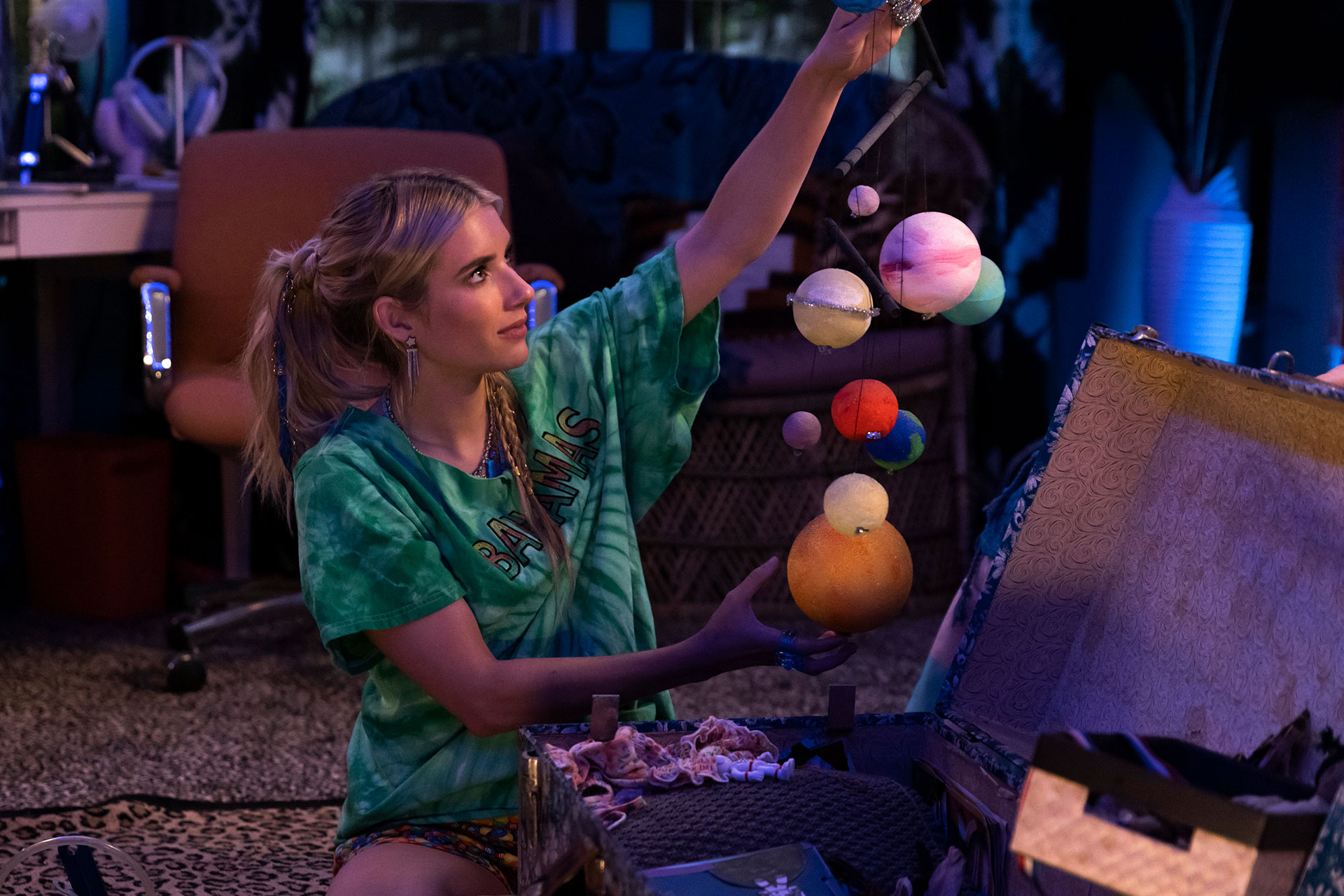
cS: Did you watch "SpaceCamp" as a cast and crew while at the home of Space Camp?
Garcia: We didn't watch "SpaceCamp," but it felt like being at Space Camp. I mean, while there they were all wearing the jumpsuits and we were having a great time going through these obstacle courses and sweating and fretting and going inside the [mockup] of the International Space Station.
cS: Did you include any nods or easter eggs referencing SpaceCamp or other space movies in "Space Cadet"?
Garcia: I named the dormitory after Sandra Bullock's character in "Gravity." And I named Gabrielle Union's character's name, Pam Proctor, after Sian Proctor, who was a civilian astronaut.
cS: There is also an almost blink-and-you-will-miss-it cameo by former NASA astronaut Mike Massimino. How did that come to be?
Garcia: That was pretty cool. My producer made contact with Mike.
We also consulted with astronaut Nicole Stott. She was a technical adviser for us. And then, when we had this scene around the boardroom, we thought it would be great if we had a cameo of some sort. We thought it would be really fun if we could find a real astronaut and Mike lives in the New York area and is totally comfortable in front of the camera.
I had also read his memoir, "Spaceman," twice when I was writing the screenplay. It was enormously helpful, so it was very cool for me to be able to meet him in real life and have him in the movie.
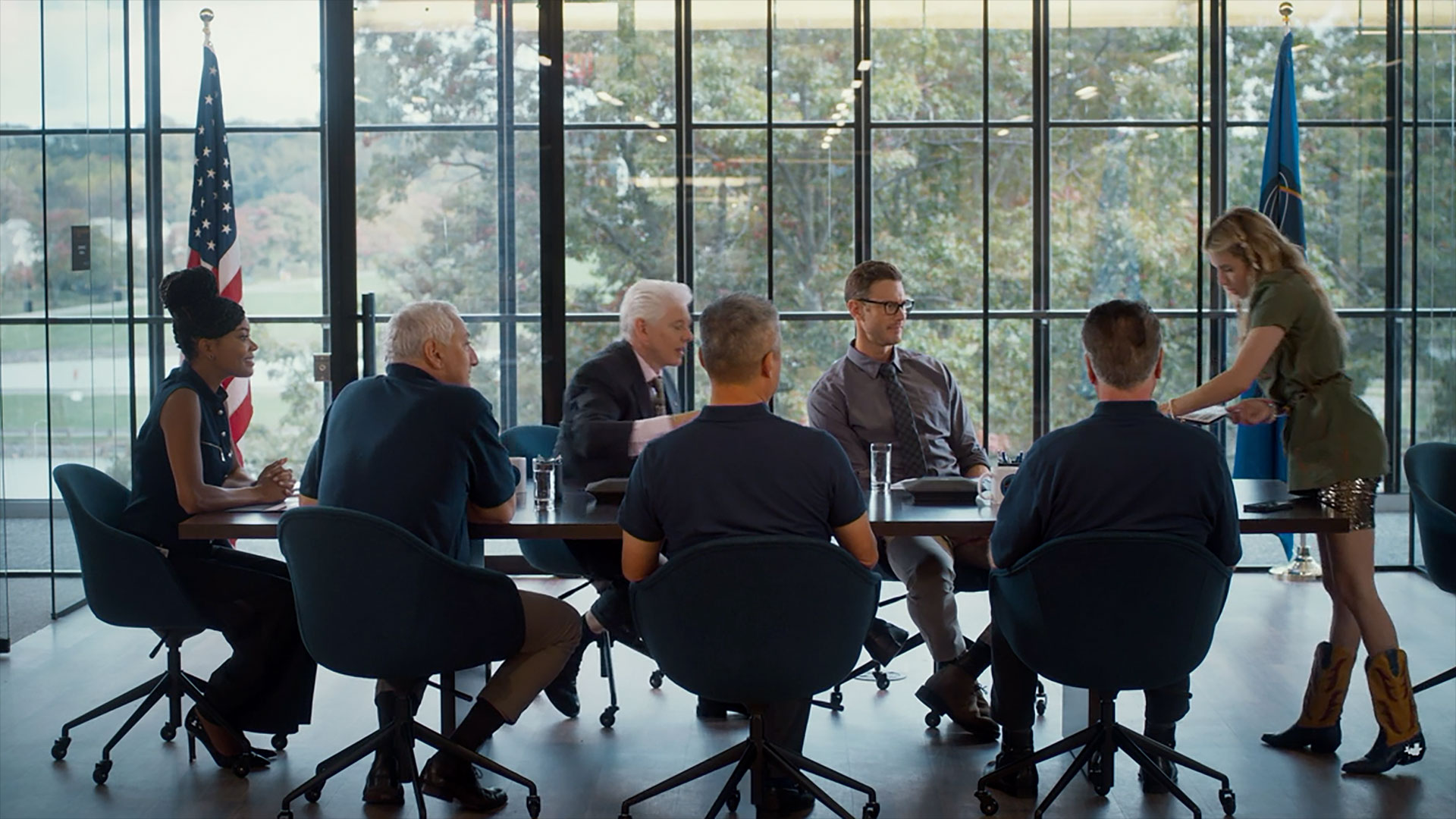
cS: What type of advice did Nicole Stott provide you?
Garcia: She read the script and said, "Yes, this is a believable training exercise we would do," or "No, this is not," or "This is how a professor would react to a mistake," or "No, it's not." So she brought the reality into it, which was great because we've got plenty of things that are not real, but we wanted the stakes and the environment to feel as real as it possibly could.
cS: Finally, to that end, and without giving away any spoilers, what was your approach when it came time to film the scenes that were intended to be in the microgravity environment of space?
Garcia: Well, because of the tone, because it's a comedy, there are elements of that sequence that are meant to be comedic. But we also really wanted it to look real. I mean, if we're going to bother to go to space, it had to really look like it.
We had a great stunt team. they were not only able to rig the actors on wires, but also able to give them tips on how to move to make the zero-g effect more convincing. We had stunt players for some of performers, and then we had an incredible VFX supervisor, Bernie Kimbacher, and he was able to create that effect of deep space. He had done other space movies, so he really knew how the movements were supposed to look. So all in all, it wound up — even in the middle of this goofy comedy — looking very real.
Follow collectSPACE.com on Facebook and on Twitter at @collectSPACE. Copyright 2024 collectSPACE.com. All rights reserved.
Join our Space Forums to keep talking space on the latest missions, night sky and more! And if you have a news tip, correction or comment, let us know at: community@space.com.

Robert Pearlman is a space historian, journalist and the founder and editor of collectSPACE.com, a daily news publication and community devoted to space history with a particular focus on how and where space exploration intersects with pop culture. Pearlman is also a contributing writer for Space.com and co-author of "Space Stations: The Art, Science, and Reality of Working in Space” published by Smithsonian Books in 2018.In 2009, he was inducted into the U.S. Space Camp Hall of Fame in Huntsville, Alabama. In 2021, he was honored by the American Astronautical Society with the Ordway Award for Sustained Excellence in Spaceflight History. In 2023, the National Space Club Florida Committee recognized Pearlman with the Kolcum News and Communications Award for excellence in telling the space story along the Space Coast and throughout the world.











